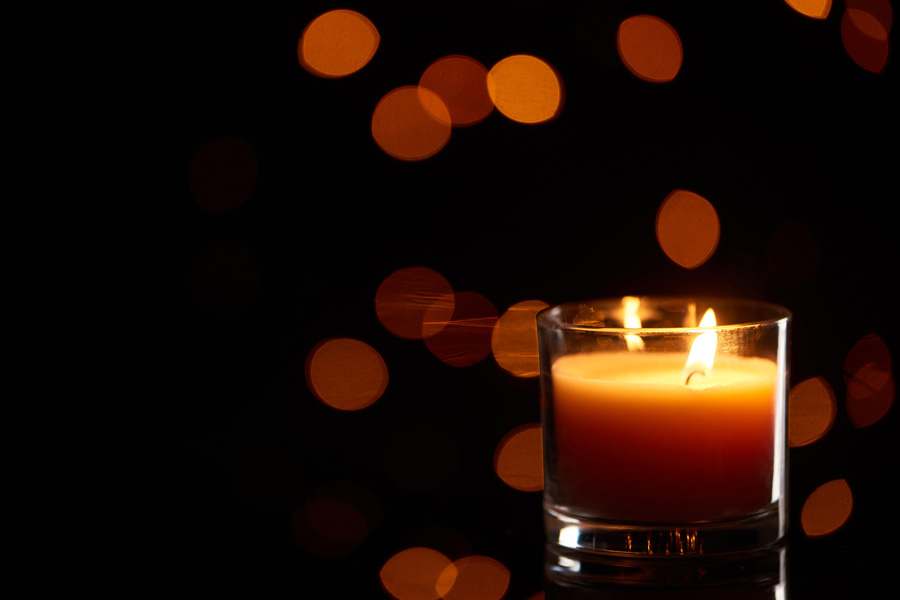
All Souls’ Day: Remembering, Hoping, and Believing in the Communion of Saints
by Fr. Tony Okolo C.S.Sp., V.F. | 11/02/2025 | Weekly ReflectionBeloved Parishioners,
This feast of All Souls’ Day celebrated every November 2nd is an act of intercession born of communion. We Catholics, trusting in God’s infinite mercy, pray for the souls in Purgatory, those being purified in preparation for heaven (Romans 6:3–9 – “If we have died with Christ, we shall also live with him”, John 11:17–27 – “I am the resurrection and the life….”).
Furthermore, this feast reflects three key theological convictions, namely the Communion of the Saints, the efficacy of prayers and the sacrifice of the Mass in honor of the dead, and our hope in resurrection. Our belief in the Communion of Saints means that the Church is one body in Christ, uniting the faithful on earth (the Church Militant), the souls being purified (the Church Suffering), and the saints in heaven (the Church Triumphant). It follows then that our prayers, almsgiving, and particularly the Eucharist, as the Church militant, assist the departed in their purification. This custom of praying for the dead dates back to the early Church and even to Jewish tradition (2 Maccabees 12:46: “It is a holy and wholesome thought to pray for the dead, that they may be loosed from sins.”). Our trust in the hope of resurrection is grounded in Christ’s victory over death, the Church affirms that death is not an end but a passage into eternal life.
We express these convictions of ours when we profess the Apostles’ Creed and the Nicene Creed, especially in these affirmations: “I believe in the communion of saints, the forgiveness of sins, the resurrection of the body, and life everlasting.” Our encoded doctrine which is the Catechism of the Catholic Church (CCC 1030–1032) states: “All who die in God’s grace and friendship, but still imperfectly purified, are indeed assured of their eternal salvation; but after death they undergo purification, so as to achieve the holiness necessary to enter the joy of heaven.” These creedal statements form the theological backbone of All Souls’ Day.
About this time last year, Pope Francis was gearing up to celebrate All Souls’ Mass at a Roman cemetery named Garden of Angels cemetery, established in 2012 to provide a dedicated space for families grieving the loss of children, including those lost to miscarriage. This would be in continuance of his tradition of celebrating All Souls’ Day in different Roman cemeteries. But today, it has pleased God to call him to himself, and we shall in turn continue to pray for him as he always desired while he was with us here. It reminds us that our stay here is short, and we shall strive to spend our time here judiciously trusting God and performing good works for no one knows the hour the Son of man will come.
However, Pope Francis left us a gift which we shall continue to cherish thanks to its significance and doctrinal connection to this solemn celebration called All Souls’ Day and that is the Jubilee Year of Hope. In the Jubilee Year of Hope, All Souls’ Day gains deeper significance because the Jubilee theme of hope reinforces the belief that death is not the end, but a passage toward eternal communion with God. On All Souls’ Day, this hope becomes concrete when we pray trusting that God’s mercy extends even beyond death. Second, Jubilees traditionally include special indulgences (spiritual graces) for the living and the dead. Thus, during the Jubilee Year of Hope, the faithful can offer indulgences for souls in purgatory, as a profound act of love and intercession. Third, both the Jubilee and All Souls’ Day celebrate the Communion of the Church on earth, in purgatory, and in heaven. The Jubilee reminds us that our hope and joy are shared across this communion, including our beloved departed. Finally, the Jubilee’s focus on conversion and mercy encourages us to pray for the dead with renewed devotion and perform acts of charity in their memory — expressions of living hope.
In a world marked by war, loss, and uncertainty, this day reminds us that death never has the final say. The light of the Risen Christ penetrates even the darkness of the grave. Again, we are called to rediscover the power of intercession—not only for the departed but also for the living who suffer. More importantly, just as the Jubilee invites all to experience reconciliation, praying for the dead awakens in us a renewed sense of repentance and compassion.
In an age that often forgets the past, All Souls’ Day calls us to remember that memory is an act of love that keeps communion alive. As Pope Francis said, “Remembering those who have gone before us in faith helps us to keep alive the memory of those who loved us and taught us to believe. Hope does not disappoint.”
BACK TO LIST